LOCATION, TIMING, LOCATION
THE TRIALS OF JESUS
Different stories
The trials of Jesus are set out in the four gospels Matthew, Mark, Luke and John. The problem is that they all give different accounts. Here is what they say happened after Jesus was arrested at Gethsemane.
Mark: Jesus was brought before the high priest, chief priests scribes and elders. They examined him (at night), then held a consultation in the early morning. They took him to Pilate. Pilate gave the crowd the choice of whom to save, Jesus or Barabbas. Jesus was scourged, then crucified about 9a.m.
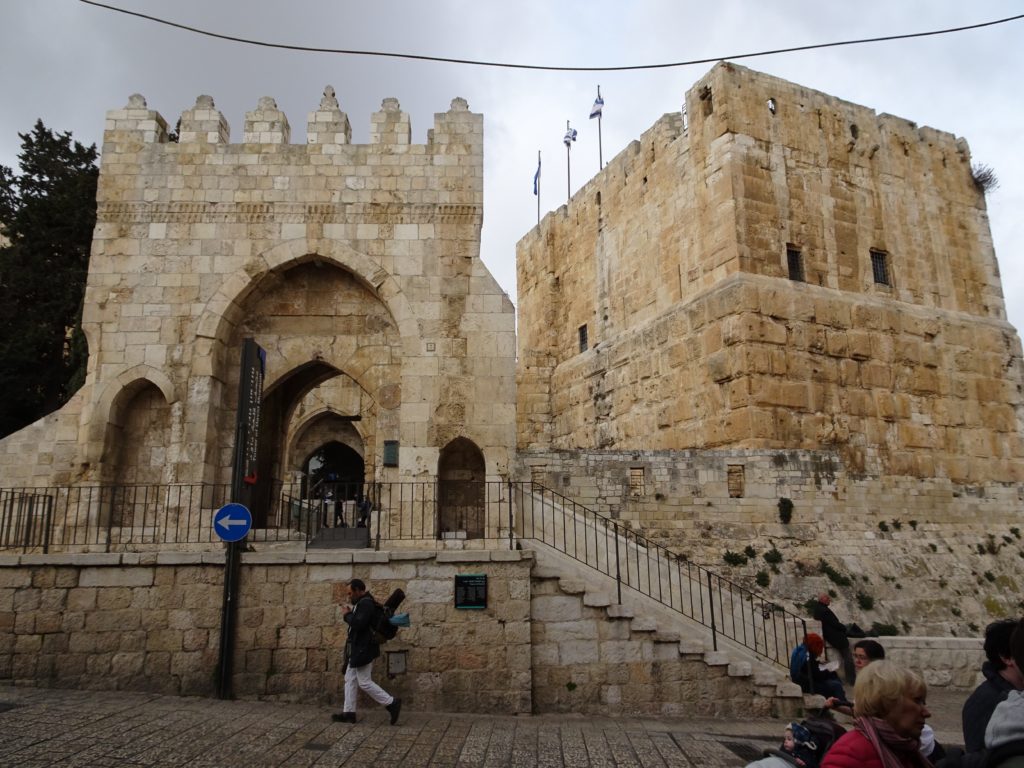
John: After his arrest, Jesus was taken to Annas, who was high priest from 6 to 16 AD. He was the father-in-law of Caiaphas, the high priest from 18 to 38 AD. After brief questioning, he sent him bound to Caiaphas. Jesus was taken from Caiaphas’ palace to Pilate who examined him publicly in the open, then privately inside the Praetorium. Pilate tried to persuade the crowd that scourging was punishment enough, but the shouts of the crowd prevailed and Jesus was taken to be crucified.
Matthew: The same as Mark, with additional details about Judas and Pilate’s wife.
Questions, questions
Various questions arise when we compare the four gospels.
- 1 Did the examination by Annas happen? Only John mentions it.
- 2 Did the examination under Caiaphas take place at night with a formal confirmation in the morning (as in Mark/Matthew) or did it take place in the early morning (as in Luke)?
- 3 Did Pilate send Jesus off to be dealt with by Herod (as in Luke)?
- 4 Was there enough time for Jesus to be put on the cross at 9.00 a.m. (as in Mark)?
Location and Timing
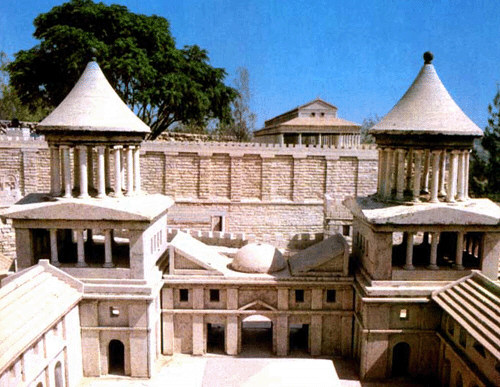
Jesus was arrested at Gethsemane around midnight, just to the east of Jerusalem over the river Kidron. The nearest route into Jerusalem was past the north wall of the Temple, whose gates would have been shut, and into the Upper City just past the immense Roman fortress called the Antonia. He would have been taken through a gate next to the Hasmonean palace, now probably the home of Annas the former high priest. So it was easy for him to be brought before Annas. And very convenient for Caiaphas.
A Rush Job
The Jerusalem priests had already decided to get rid of this Galilean troublemaker, but had decided that it was just too risky at Passover with over million volatile pilgrims encamped round about. Jesus’ decision to have the Passover meal inside the city instead of safe in Bethany surrounded by thousands of his supporters, forced their hand. They had just one or two hours in which to make the arrest. And then less than twelve hours to get rid of him, or they could be faced with a massive revolt. But nothing was prepared. No court, no witnesses, no execution plan. Caiaphas must have worked all night, assembling a quorum of the Sanhedrin (23 out of 71), and getting potential witnesses out of their beds! He also probably went to see the Roman governor to make sure that things would go smoothly at Pilate’s end. Part of his delaying tactics could have been to get his father-in-law to hold a preliminary inquiry. When that failed, Caiaphas had a dungeon in his palace (only just discovered by Israeli archaeologists) where Jesus could have been kept till they were ready for him.
Night or Morning?
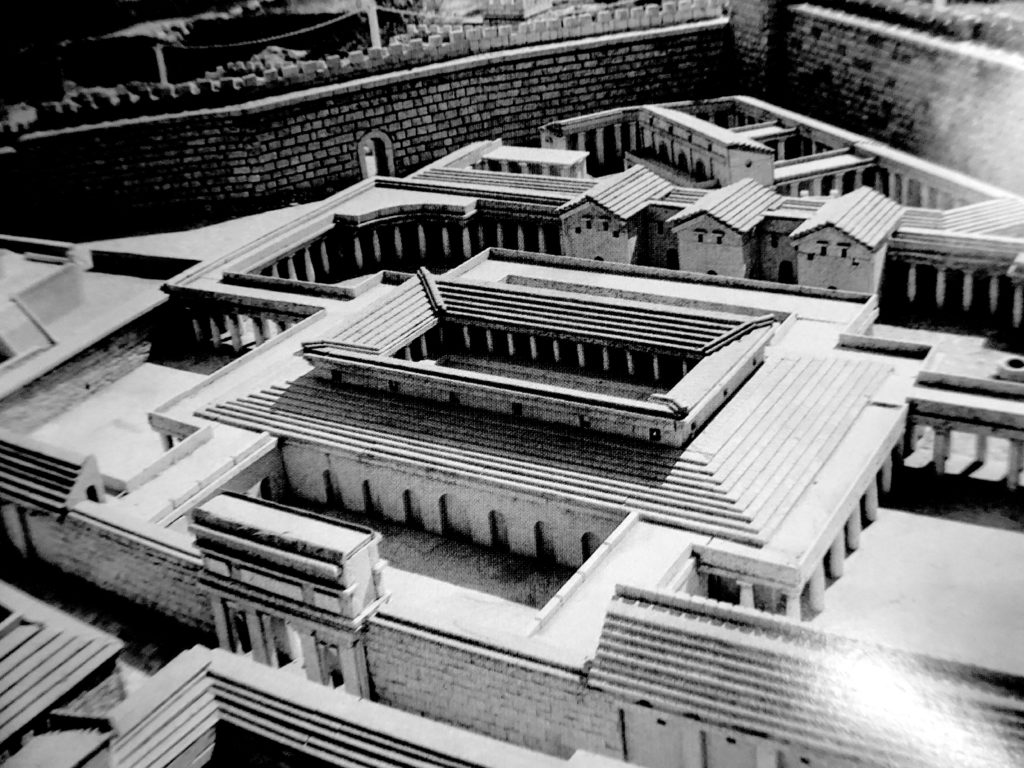
The problem with Mark’s account of the trial under Caiaphas was that it was illegal to hold a trial at night. And they were clearly trying to keep to the legalities, e.g. having two witnesses needing to agree about what they had heard. But was it possible to have held it daylight and still get Jesus executed before everyone awoke?
Sunrise in early April was about 6.30. So it would have been light at 6.00 a.m. This was would have been marked by the Roman garrison in the Antonia sounding the bugles to signal the change of the watch. It was also the time that the priests would have assembled in the Temple to cast lots to determine who would carry out what duties.
So if the trial started at 6.00 and took an hour, they could have brought Jesus to Pilate shortly after 7.00.
Where was Pilate’s headquarters?
Having looked at the evidence, which I summarise in ‘Jesus the Troublemaker’, I am convinced that Pilate would have made his headquarters at the Roman barracks which had taken over one of the two large palaces built by Herod I. The other palace had been given to Herod Antipas, ruler of Galilee. Between them was an enormous mosaic pavement which Herod had built to be fifteen feet above street level, exactly as described by John 19.13. According to the model of 1st century Jerusalem at the Israel Museum this palace had a large porch, perhaps 20 meters wide, with a balcony above. The whole three storey palace was built round an inner courtyard which is where the scourging of Jesus would have taken place.
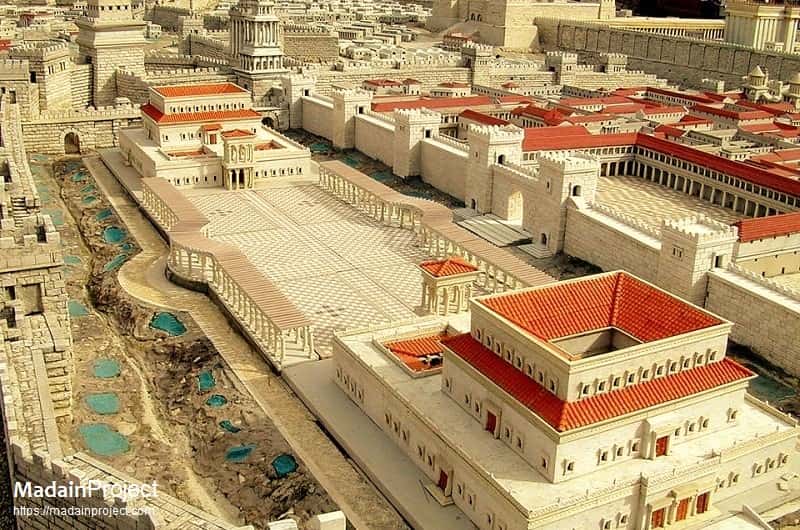
And crucially it was less than five minute’s walk away from an identikit palace which Herod Antipas had owned since the exile of this brother Archelaus. So Luke’s interjecting an investigation by Herod Antipas between the two hearings by Pilate is perfectly possible. The distance between Pilate’s headquarters between Golgotha (or Skull Hill) was no more than a ten minutes’ walk. So the timing could have been:
- 7.00 First examination by Pilate
- 7.30 Examination by Herod
- 8.00 Second examination by Pilate. Appeal to the crowd.
- 8.30 Scourging and walk to Golgotha
- 9.00 Crucifixion.
Herod and Jesus
Luke tells us that Herod ‘questioned Jesus at some length’, but gives no details. Herod was an experienced ruler, having ruled Galilee since 4 B.C., i.e. for over 35 years at this time. He is an important secondary character in Robert Graves’ ‘Claudius the God’, and I have used his characterisation in my account of Herod’s examination of Jesus. Here is how I have it portrayed in ‘Jesus the Troublemaker’.
Before Herod Antipas
Herod unrolled the papyrus and read it attentively. “My goodness, so you are Iēsous, or if I’m not mistaken Yeshua Ish-Nazaret. Is that right, Kayafa?”.
“Yes, that is correct.”
“Well, Yeshua,” he said, continuing in fluent Aramaic. “You have spent some time avoiding my company, and lo and behold, here you are, without my having to lift a finger. You might call it providential.”
Kayafa was finding it hard to contain his irritation and impatience. Yeshua stood imperturbably as if the occasion had nothing to do with him at all.
“Now that you are here, and apparently without any pressing matter to hand, I would like you to satisfy my curiosity over one or two points. I have been told that you were responsible for the healing of the young son of one of my officials, and that from a considerable distance.⁷ Tell me, Yeshua, how did you do it?”
Yeshua was silent.
“No answer? How vexing. Is it perhaps because you disapprove of my building my splendid new capital of Tiberias – and providing employment to hundreds of local people – over a disused graveyard?⁸ Am I a sacrilegious person in your eyes?”
Again, no response.
“Perhaps you simply have no respect for me, eh? I’m just ‘that fox’.⁹ I warn you, Yeshua, foxes can bite.”
Still no response.
“Or do you blame me for your kinsman Yochanan’s death? I regret that almost as much as you do. My hand was forced.” Herod paused, and looked for some reaction in Yeshua’s face, but it remained impassive.
Kayafa could stand it no more. “Your honour, this man stands before you under the most serious charges of blasphemy and sedition. He showed as little respect for the Great Council as he does to your nobleness. In his pride and madness he claims to be ha Maschiach, the son of the Blessed One, the coming Judge. Action has to be taken, particularly as Yerushalyim is always in a volatile state during major festivals like Pesach.”
A priest added, “Yes , your majesty,” Kayafa winced again but Herod looked rather pleased. “He doesn’t want people to pay their taxes. And he’s a magician!”
The Messiah?
Herod looked decidedly amused. “Really! Well, let’s look again at our friend Pilatus’ letter. So you claim to be the Maschiach, do you? Well, well. I fear that an ancient politician like me is hardly competent to adjudicate such a claim. The Sanhedrin don’t seem to be in favour, eh Kayafa?”
The High Priest bowed in silent assent.
“You have indeed been one of my subjects, though as far as I am concerned, a very invisible one. But the Maschiach, as we are all well aware, hails from Beit-Lechem, the city of David. In fact just a dirty little village and very appropriately called a bakery.¹⁰ Anyway, as such, you clearly are the responsibility of the Procurator of Y’hudah and Samaria, so I am sending you back to him.” He beckoned a slave. “Go and find Tertius and tell him I want to send a letter, now.”
Letter to Pilate
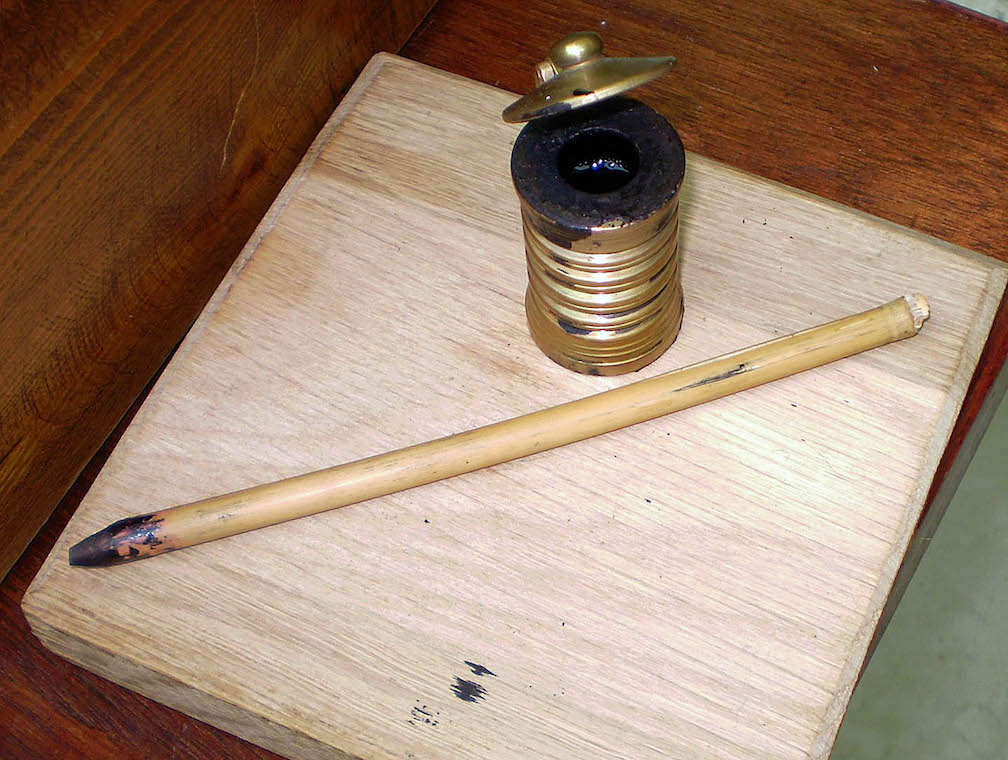
A couple of minutes later the secretary arrived with papyrus, pen and ink and sat down on a stool. Herod started dictating.
“Herod Antipas, Tetrarch of Galilee and Peraea to his Excellency Pontius Pilatus, Procurator of Judaea and Samaria. Greetings.
“I thank the God of our fathers daily for your firm governance of the Province.
“I specially thank you for sending me the interesting prisoner Iēsoun, and your courtesy in acknowledging my interest in those who live in the territory appointed for me. I was interested to meet him, but sadly he’s like one of the mute swans on my ornamental lakes – all feathers and no voice. However, on learning of his claim to be the Xristos, I believe that he now comes under your jurisdiction. Part of the claim traditionally includes provenance from the town of Bethlehem, the city of David in the territory of Judah. I therefore return him to you with my compliments.
“I would also like to invite you, my dear Pilatus, for dinner in my palace here at the end of the present feast. We shall then be able to enjoy decent bread. We have for too long allowed a few local misunderstandings to cloud what should, I believe, be a harmonious working relationship. I wish you the best of health, and as much serenity as this city allows.
“The eighteenth year of Tiberius Caesar, the seventh day of Aprilios in the morning.”
“Now we shouldn’t allow our distinguished visitor to leave empty-handed. The maschiach needs a kingly robe, surely.” He called a household slave.
“Go and find one of my old purple cloaks – not a good one mind – and we’ll put it on this dumb prophet. And a bronze brooch to keep it in place, a cheap one. Go on!”
After a few minutes’ delay, a faded purple cloak was brought in and fastened with a brooch at the shoulder.
“Off you go, your Majesty,” Herod said grinning, and the priests and guards could not help grinning themselves. Yeshua was marched unresisting out of the Tetrarch’s palace and across the piazza back to the governor’s headquarters.
Coming on Friday:
Travelling to Easter 7 –
The Resurrection Stories
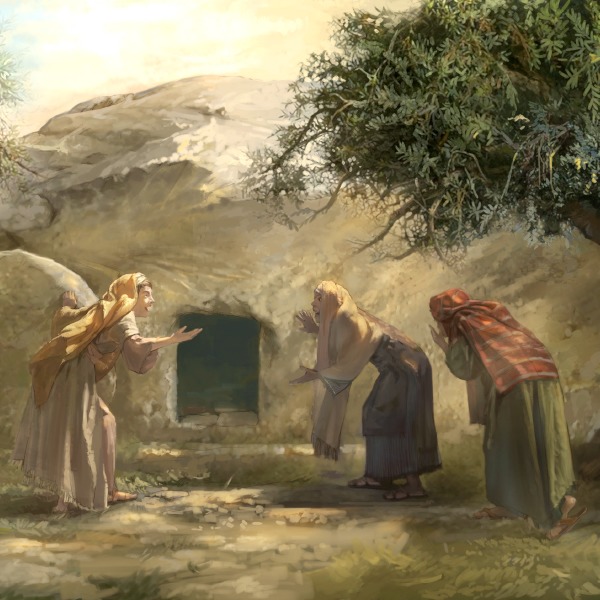
7.30 – 9.00 pm Wednesday 14th April
The Puzzle of Easter Solved
Zoom talk and discussion
See https://www.eventbrite.co.uk/e/the-puzzle-of-easter-solved-tickets-149413031399
And do check out ‘Jesus the Troublemaker’
on Amazon or bibleinbrief.org

